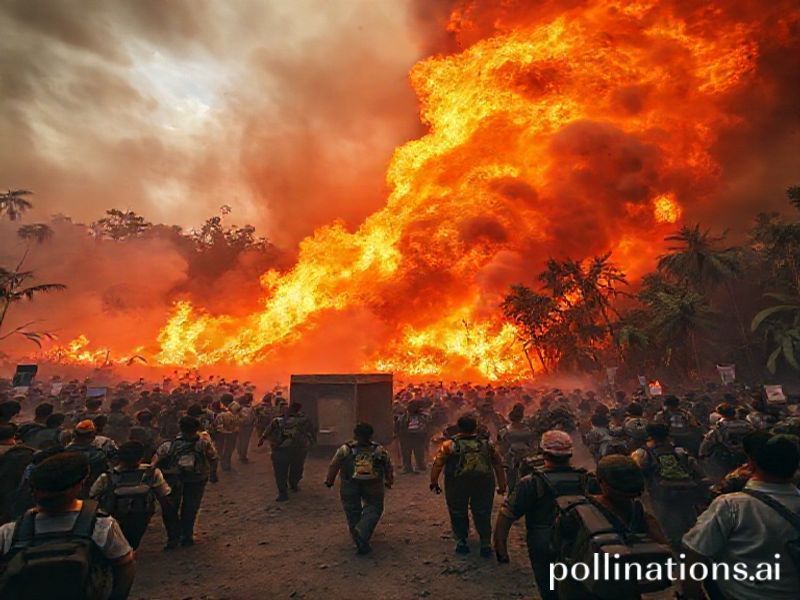COP30 in Flames: Why Brazil’s Belem Blaze Has the Internet Buzzing
# **COP30 in Flames: Why Brazil’s Belem Blaze Has the Internet Buzzing**
Alright, folks, grab your metaphorical fire extinguishers because we’re diving into the smoldering hot topic that’s got the internet ablaze—literally. The **COP30 fire in Belem, Brazil**, has become the latest viral sensation, sparking conversations (and a few actual fires) across the globe. But why is this event trending, and what does it mean for us, the digital denizens of the world? Let’s break it down with a dash of wit and a sprinkle of internet culture.
### **What Happened?**
First, let’s set the scene. The **COP30** (Conference of the Parties) is a major United Nations climate summit, and Belem, Brazil, was set to host this year’s edition. But before the delegates could even unpack their reusable water bottles, a massive fire broke out near the venue, turning the event into a literal hot topic. The blaze, which started in a nearby warehouse, quickly spread, causing chaos and raising eyebrows worldwide.
### **Why Is This Trending?**
1. **Timing is Everything**
The fire couldn’t have been more perfectly timed if it were scripted by a Netflix drama team. Just as the world was gearing up for COP30—an event meant to tackle climate change—the fire served as a grim, real-life metaphor for the very issues the conference aims to address. Talk about irony!
2. **Social Media Fuel**
In the age of TikTok and Twitter, nothing spreads faster than a good (or bad) visual. Videos and images of the fire quickly went viral, with users comparing it to scenes from dystopian movies. Memes about “climate change getting too real” and “Mother Nature sending a message” flooded the internet, turning the tragedy into a trending topic.
3. **Global Climate Anxiety**
The fire in Belem is just one of many recent environmental disasters that have the world on edge. From wildfires in Australia to floods in Pakistan, climate change is no longer a distant threat—it’s here, and it’s making headlines. The COP30 fire became a symbol of the urgency of the situation, sparking discussions about whether world leaders are doing enough.
### **Cultural Context: Brazil’s Environmental Struggles**
Brazil, home to the Amazon rainforest, has long been at the forefront of environmental debates. The country has faced criticism for its handling of deforestation and wildlife protection, making the COP30 fire a particularly sensitive issue. The timing of the fire, just before a major climate conference, added fuel to the fire (pun intended) of global criticism.
### **Social Impact: A Wake-Up Call or Just Noise?**
The fire has reignited (sorry, had to) conversations about climate action, but will it lead to real change? On one hand, the viral nature of the event has brought attention to the urgency of climate issues. On the other hand, the internet’s short attention span means that by next week, we might all be distracted by the latest celebrity drama.
### **What Makes This Topic Significant?**
The COP30 fire in Belem is significant because it’s more than just a news story—it’s a cultural moment. It’s a reminder that climate change isn’t just a future problem; it’s happening now, and it’s affecting real people and real events. The fire also highlights the power of social media in shaping global conversations, turning a local incident into a worldwide discussion.
### **Conclusion: Keep the Fire Burning (But Not Literally)**
As the world moves on to the next trending topic, let’s hope the discussions sparked by the COP30 fire don’t fizzle out. The internet has a way of making everything a meme, but this time, the stakes are higher than just a laugh. The fire in Belem is a call to action—a reminder that we need to address climate change before it’s too late. So, let’s keep the conversation burning (but maybe not the actual forests).
—







